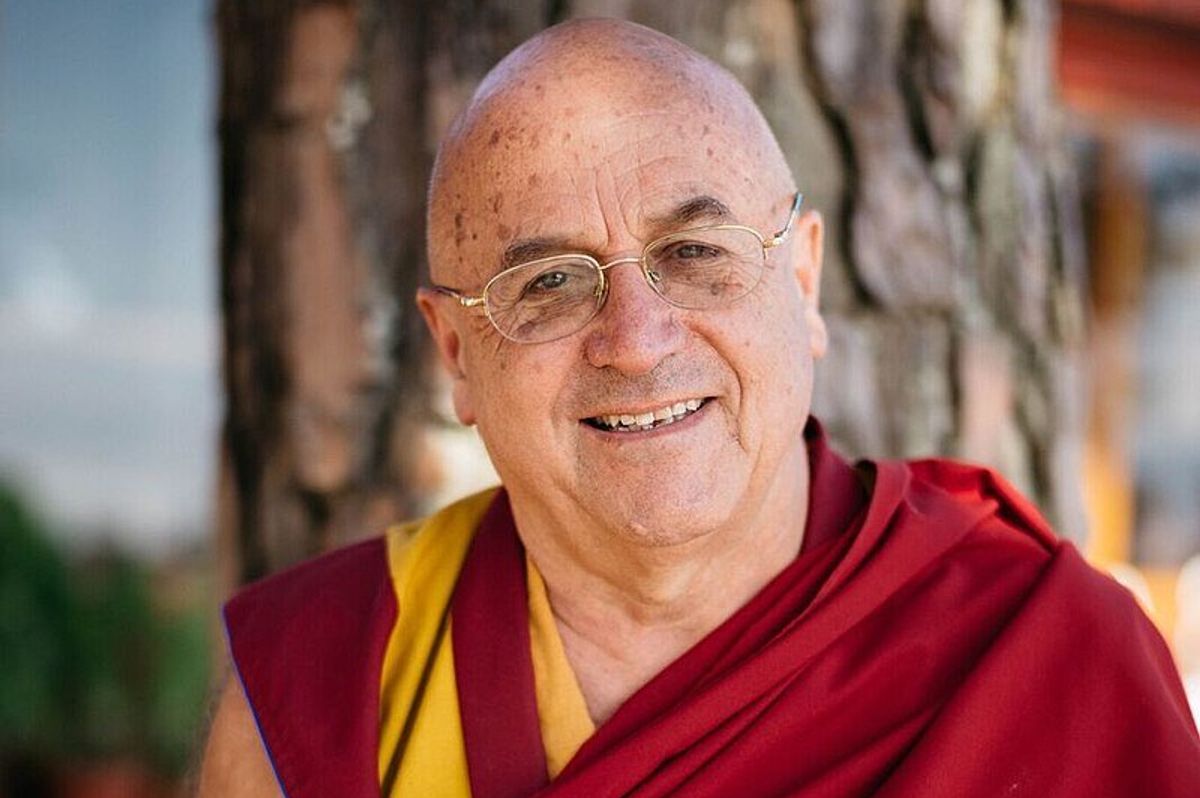A simple way to be happier and do more for the planet, according to 'The World's Happiest Man'
What if you only had to do one thing every day to feel more joy?

Portrait of Matthieu Ricard
Matthieu Ricard, often called "the happiest man in the world," says that the way for all of us to live sustainably on this planet is to adopt a culture of thinking about each other. And not just the others who are here right now, but also people we'll never meet.
He tells us some stuff that you're probably tired of hearing. We're exhausting our planets resources. Humanity has completely screwed everything up on this planet.
But stick around because he's going to get crazy surprising.
This is not a speech about recycling.
He points out that our situation is even more serious than you might have known. We're rapidly exceeding the planetary boundaries that make Earth habitable.And, let's be honest, it's easy not to feel crazy urgent about this, right?
- The glaciers are melting, but I didn't see them back when they were all there.
- There's a flotilla of plastic out in the Pacific, but it's pretty far from my home.
- And we've lost half of the world's species since 1970, but how many of them were cute ones? (Kidding — lots of them were.)
When we consider how we treat our planet, when we're talking about big action, we're doing it because we'd like our kids and grandkids to not live in a post-apocalyptic hellscape.
But then he offers a solution.
And it's not about buying a Prius.
So, his big revolutionary advice is just to look out for each other but in a tremendous way. Look out for your neighbor. Look out for your friend. Look out for your enemy and their great-great-great-grandkid.
But is that possible? And can we be happy if we think about others that much?
In fact, it happens all the time. So often that it's not newsworthy. This ordinary goodness is what helps communities and families grow.
An international survey found that the very most perfect predictor of happiness is the quality of human relationships.
But what is altruism? Is it a choice? Is it something we do for ourselves so that we will feel good about ourselves?
But how do we encourage that impulse to grow within ourselves, our communities, and our children?
For that, you'll have to watch the video.
- Clear Your Next 10 Minutes Because This Video Could Change How Happy You Are With Your Entire Week ›
- How spending time with grandkids can help grandparents stay healthy, happy, and sharp. ›
- When you ask people around the world what makes them happy, these are just some of the answers. ›
- 10 things that made us smile at Upworthy this week - Upworthy ›
- 10 delightful finds from around the internet this week - Upworthy ›
- Upworthy's weekly roundup of joy - Upworthy ›
- 10 things that made us smile this week - Upworthy ›
- 10 things that made us smile this week - Upworthy ›
- Upworthy's list of 10 things that made us smile this week - Upworthy ›
- 10 things that made us smile at Upworthy this week - Upworthy ›
- Arthur C. Brooks' happiness advice - Upworthy ›
- Psychologist Carl Jung believed these five specific things will lead you to a happier life - Upworthy ›
- How to be happy in the second half of life - Upworthy ›
- A trick to stop overthinking and build a genuine connection - Upworthy ›

